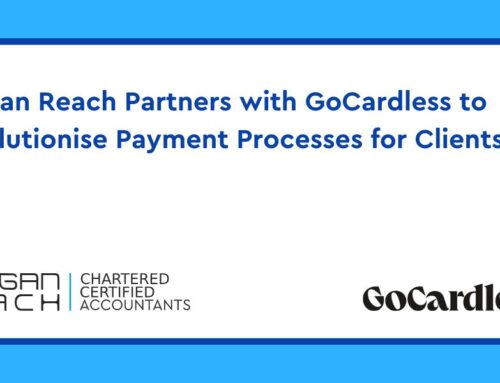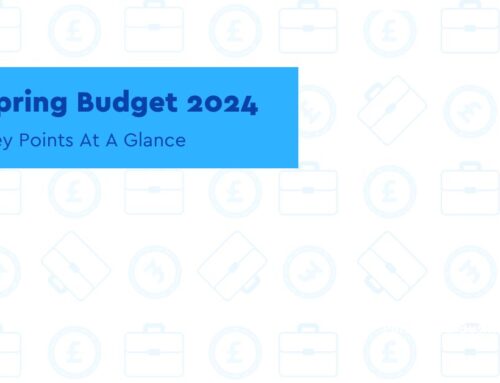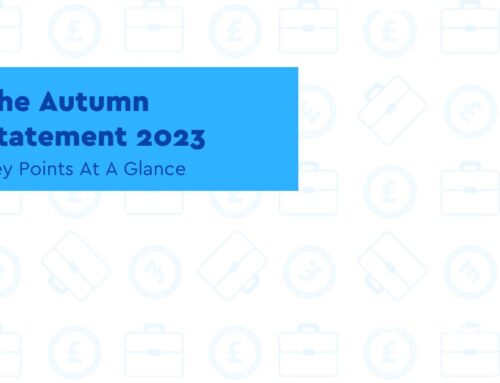Covid sick pay rebate scheme set to close
Key Points
- During the pandemic, certain employers could reclaim some, or all, of their SSP costs from HMRC
- Any claims relating to periods prior to September 30 must be filed by December 31, 2021
The government scheme enabling small businesses to recoup statutory sick pay costs due to coronavirus will close at the end of the month, meaning any outstanding claims must be made by December 31, 2021.
Legislation ending the coronavirus statutory sick pay rebate scheme (SSPRS) was laid before parliament on September 9.
Before the Covid-19 pandemic employers were obliged to pay statutory sick pay (SSP) to eligible employees unable to work because of sickness. It is paid at a flat rate of £96.35 (at the current rate) for up to 28 weeks. The full cost of SSP is met by the employer.
To support employers during the pandemic the government legislated to allow certain small and medium size employers to reclaim some, or all, of their SSP costs from HMRC via the SSPRS.
Under the new regulations, employers will not be able to reclaim SSP from September 30, 2021 and any claims relating to periods prior to that date must have been filed by December 31, 2021.
Employees will continue to remain entitled to SSP from day one of the PIW if the absence is for coronavirus-related reasons.
How it started
In March 2020, two announcements were made that would help employees with the payment of Statutory Sick Pay (SSP) and help employers with recovery from the pandemic:
On March 3, 2020, the Prime Minister announced that Covid-19 related SSP would be payable from the first qualifying day rather than after three waiting days (that still applies with ‘normal SSP’). This factor of ‘Coronavirus SSP’ is being retained.
Employees will continue to remain entitled to SSP from day one of the period of incapacity for work (PIW) but only if the absence is for coronavirus-related reasons.
Rishi Sunak confirmed at Budget 2020 that reimbursement of SSP would be for employers with fewer than 250 employees.
HMRC’s online reclaims portal opened on May 26, 2020, accessible via a government gateway user ID. When reclaiming the SSP, the employer must provide the PAYE scheme reference number and the total amount of Covid-19 SSP paid for the claim period. It must also make these declarations:
- That the employer was not ‘in difficulty’ on December 31, 2019 or June 29, 2020 depending on the dates of sickness.
- Confirm the amount claimed will not result in the amount of state aid received making them exceed the allowable cap for their sector.
- That the information stated in the claim is true and accurate
The new legislation means that eligible employers cannot use the scheme (and make reclaims) for any Covid SSP absence occurring after September 30, 2021.
However, the legislation allows for a transitional administrative arrangement that is in place until December 31, 2021 allowing employers the time to either:
- Submit any claims, or
- Amend any claims
CBI: Higher business taxes and lower business investment are not a plan for growth
Key Points
- CBI Director issues proposals “to unleash business investment”
- This includes smarter taxation, new skills for new markets, catalytic public investment and market making
The lack of detail and pace from the government on some of the big economic choices we must make as a country, top current concerns for business, according to CBI Director General Tony Danker.
Speaking at the Alliance Manchester Business School, he warned the government that a “return to business as usual in our economic policy, at this unique moment in British economic history, would be a mistake”.
Instead the government needs to be bold in order to unleash business investment. As every country is shifting its strategy to get behind the future engines of economic growth, it’s the only way the UK can forge a new growth story to compete in the world.
Danker issued four proposals to get firms investing more:
- Smarter taxation – reward those firms who invest, rather than the current business rates system, for example, that perversely taxes more than half of business investments;
- New skills for new markets– creating individual training accounts to more easily access support, for those most in need and/or out of work and reforming the apprenticeship levy;
- Catalytic public investment– to speed up the development of major infrastructure projects, new industries, and cutting-edge tech;
- Market making – replicate the successes of offshore wind in hydrogen and other emerging industries and fundamentally rebalance UK economic regulation.
“Investing in the UK. Investing by the UK. That must be our mantra now – so that the decade ahead does not repeat the low growth, zero productivity of the decade past,” he said. “And the government holds the key to unlocking it all.”
Last week the government outlined plans to raise £12 billion a year from an increase in national insurance contributions and dividend income to pay for health and social care.
About £6.5 billion of the revenue would come from employers’ national insurance contributions, dubbed a tax on jobs, which follows the £16 billion increase in corporation tax unveiled in the March budget, when the rate was raised from 19 to 25 per cent from 2023.
The CBI is urging the government to use “catalytic public investment” to draw private money as well as regulatory changes to encourage pension funds and insurers to back capital projects. Smarter taxation is needed to encourage green investment and individual training accounts should be provided to reskill those out or work.
Britain is lagging behind its rivals, with business investment totalling only 10 per cent of GDP in 2019 and government investment forecast to average 3.4 per cent of GDP over the next five years, compared with 3.9 per cent in the US, 4.1 per cent in Canada, 5.9 per cent in Japan and 9 per cent in China.
Pensions triple-lock to be suspended for one year
Key Points
- For the 2022/23 tax year, pensions will rise either by 2.5% or inflation, whichever is highest
- The maximum offered by the basic state pension is £137.60 a week. The new state pension is £179.60 a week
The triple lock on the state pension will be temporarily suspended next year due to an anticipated “unusual change in earnings” of 8%, saving the Treasury £4 billion, Work and Pension Secretary Thérèse Coffey has announced.
Introduced in 2010, the new formula saw state pension increase in line with the highest rate among three economic indicators.
- A base level of 2.5%
- Inflation, as measured by the Consumer Prices Index (CPI)
- The average wage increase
For the 2022/23 tax year, pensions will rise either by 2.5% or inflation, whichever is highest, breaking a Conservative manifesto triple lock pledge that said state pensions could also grow in line with wage growth if that was the highest.
Parliament will first need to approve the change though, with the exact rise likely to be confirmed in October.
Coffey said the move would ensure “pensioners are not unfairly benefitting from a statistical anomaly”, given that wage growth has been artificially boosted by the thousands of workers coming off the furlough scheme and returning to payroll.
The maximum offered by the basic state pension is £137.60 a week, while the new state pension is £179.60 a week.
As far back as April 2020, the Social Market Foundation was calling for a “double lock” on pensions, arguing that “shaving £4bn from the growth of the £100(bn) pension bill is not too much to ask” as the country emerged from the COVID-19 crisis with a mounting annual deficit.
State pensions should still rise by at least 2.5%
If the earnings element of the triple lock is set aside, the state pension is set to increase by the higher of 2.5% or September’s consumer price index (CPI) inflation figure, which will be published next month.
A 2.5% increase would see the maximum payments for those who reached state pension age on or after April 6, 2016 rise by £4.49, from £179.60/week to £184.09/week – an annual increase of £233.48.
What does the Government say?
In a statement published on Gov.uk, the Department for Work and Pensions said: “Younger people have been hit hardest by the financial impacts of the pandemic, and the artificial inflation of pensioner incomes at this time would be out of kilter with the pressures being experienced by the rest of the population.
“This legislation makes sure pensioners’ spending power is preserved and they’re protected from higher costs of living, while ensuring they are not unfairly benefitting from a statistical anomaly.”
Covid-19 response: Autumn and Winter Plan
Key Points
- “Plan A” is designed to prevent the NHS being overwhelmed, and promotes vaccines and testing
- “Plan B” to be used if the NHS is coming under “unsustainable pressure”, includes measures such as face masks
The Prime Minister this week held a briefing to set out the government’s plan to manage Covid throughout Autumn and Winter.
As part of the plan, the NHS is preparing to offer Covid booster jabs from next week. Around 30 million people, including the over-50s, younger adults with health conditions and frontline health and social care workers, will be offered a third dose
Other parts of the “Plan A” include encouraging the unvaccinated to have the jab. “Plan B”, which would be triggered if the NHS comes under unsustainable pressure, could include compulsory face coverings in certain settings, asking people to work from home, and the possible introduction of vaccine passports
“Five pillars” of Autumn/Winter plan
Vaccines
- The government wants to maximise the uptake of the vaccines among those that are eligible but have not yet taken up the offer.
- They will offer booster doses starting with priority groups 1-9 from the first rollout.
- They will offer a first dose of vaccine to 12 to 15-year-olds
Test, Trace and Isolate
- PCR testing will continue to be available free of charge, as will symptom-free lateral flow tests
- Contact tracing will continue through the NHS test and trace system
- Practical and financial help will be given to all those still required to self-isolate
Supporting the NHS and social care
- The government will give the NHS £5.4bn towards its Covid response over the next six months, including £1bn to tackle the backlog
- There’s a consultation going on but the health secretary says it is “highly likely” that front-line NHS staff and those working in wider social care settings will also have to be vaccinated
Guidance and communication
- People will be encouraged to meet outdoors where possible, and try to let in fresh air when meeting indoors and face masks should be worn in crowded areas
International approach
- The UK will play its part to lead the global effort to accelerate access to vaccines, therapeutics and diagnostics
- The UK will maintain strong defences at the border to identify and respond to variants of concern
On the possibility of Covid passports, which have been criticised by some MPs and businesses, the PM said it was “just not sensible” to “rule out completely” the option.
He said it “might still make the difference” between keeping businesses open at full capacity or not. But he added that not introducing them at the moment was the “right balance” based on the current data.
The PM said given the high level of vaccinations and antibodies in the population, smaller changes can now make a bigger difference and “give us the confidence that we don’t need to go back to the lockdowns of the past”.
Our Latest Snippets
Weekly HMRC, Gov’t and tax updates
Stamp Duty Land Tax changes from October
Stamp Duty is a tax you might have to pay if you buy a residential property or a piece of land in England or Northern Ireland over a certain price.
If you’re buying your main property up until September 30, 2021, you will not have to pay Stamp Duty on properties costing up to £250,000.
For properties costing more than £250,000 you will pay the Stamp Duty rate based on the purchase price.
If you’re a first-time buyer, you will pay no Stamp Duty on properties costing up to £300,000, and a discounted rate on property purchases up to £500,000.
From October 1, 2021, you will pay Stamp Duty on residential properties costing more than £125,000, unless you qualify for first-time buyers relief.
If you’re buying a second home, you’ll still pay an extra 3% Stamp Duty on properties costing more than £40,000 at the relevant rates at that time.
This tax applies to both freehold and leasehold properties – whether you’re buying outright or with a mortgage.
If you’re buying a property in Scotland, you will pay Land and Buildings Transaction Tax (LBTT) and in Wales, Land Transaction Tax (LTT) instead of Stamp Duty.
Registration service opens to non-taxable trusts
HMRC has opened its trust registration service to all trusts, including non-taxable ones in existence since 6 October 2020.
All UK express trusts and some non-UK express trusts must register with HMRC. This includes non-taxable trusts, unless they are excluded due to certain characteristics.
A non-taxable trust must be registered if:
- It was created between October 6, 2020 and September 1, 2022
- It was created within the 90 days after September 1, 2022
- There are changes to the trust’s details or circumstances.
The change also gives trustees more time to register than they have under current legislation, extending the trust registration deadline from March 10, 2022 to September 1, 2022.
HMRC said legislation “will be amended shortly to reflect this”.
The Institute of Chartered Accountants in England and Wales confirmed that trusts relating to healthcare policies and children’s bank accounts will not be required to register with HMRC.
HMRC provides a portal for trustees registering a trust, separate from the portal for agents registering a trust.
Time limit to opt to tax land reverts to 30 days – e-signatures remain
HMRC has confirmed that the temporary extension to time limits to notify an option to tax land and buildings has ended. Taxpayers were given 90 days to notify HMRC of an option from February 15, 2020 to July 31, 2021 in light of the impact of the coronavirus pandemic.
For option decisions made from August 1, 2021 the time limit has reverted to 30 days. Another temporary change introduced due to COVID was the acceptance of electronic signatures on options to tax. In an update to guidance, HMRC has confirmed that this change has now been made permanent.
Get In Touch
At Morgan Reach, we understand every business needs a little help now and again-especially when it comes to the financial side of things. Therefore, to help our clients and visitors we endeavour to cover as much of the business news as possible. If you are self-employed or run a business and need assistance and advice on how these news could make a difference to you or your business, feel free to get in touch with the experts at Morgan Reach. Our business growth experts at Morgan Reach will guide you through what support is available for you or your business as well as the latest news that may affect you.







